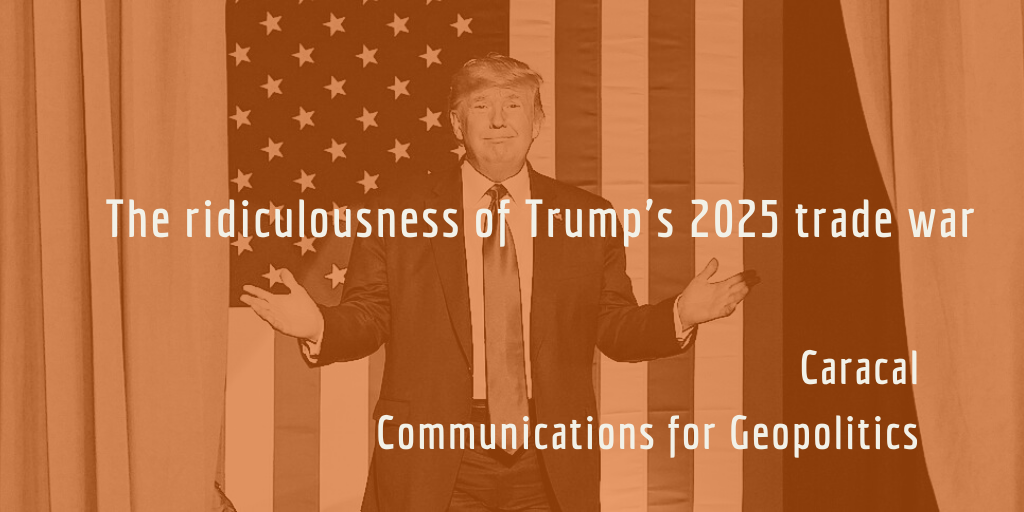Trump's legal justification for his 2025 trade war is both unprecedented and legally tenuous.
The Wall Street Journal editorial board analysis was even more succinct than mine: "Trump's justification for this economic assault on the neighbors makes no sense."
Trump used the International Emergency Economic Powers Act (IEEPA) to execute this 2025 trade war with Canada, Mexico, and China.
President Carter signed the IEEPA into law in 1977 to grant executive authority over emergencies during peacetime. The IEEPA permits the president to deal with unusual and extraordinary threats to national security by reforming the United States' economic policies.
The IEEPA has been used, for example, to punish Iran during the hostage crisis, North Korea in an effort to slow that nation's nuclear proliferation, and Venezuela for human rights violations.
In nearly every case where the US government has used the IEEPA to hamper a nation, specific property of persons engaged in destabilizing activities and various forms of commerce involved in activities determined to be detrimental to US national security have been targeted. Never has an entire nation's exports to the US been subjected to a blanket tariff. Such a blanket tariff—a universal tax on all imports from a country—represents an unprecedented expansion of IEEPA's scope.
Repeat: no president has previously used the IEEPA to enact tariffs.
Trump is using the illegal cross-border drug trade as his excuse for this trade war. But make no mistake: He has made clear that he likes tariffs for their own sake. During his campaigning last fall in Michigan, Trump said, "Tariffs are the greatest thing ever invented." During his previous administration, he called himself "Tariff Man."
In the run-up to this 2025 trade war, Trump posted on Canada and Mexico: "We don't need the products that they have. We have all the oil you need. We have all the trees you need, meaning the lumber."
Shockingly, this statement is false. On oil alone, NBC News reports that the US imports some 4 million barrels of Canadian crude daily, 70% of which is processed by refiners in the Midwest. It also imports over 450,000 barrels of Mexican oil daily.
Less than a fortnight into this new reign as president, Trump has been on a media tear, forcing himself into all daily headlines. I have noticed that when a media outing doesn't go swimmingly for him, or the headlines are dismal, he pivots and generates chaos elsewhere to distract and create new headlines, new storylines, and new political reality theatre. Cosplay is his safe place. This pattern of manufacturing distractions has become his default tactic.
Trump's 2025 trade war exemplifies his familiar pivot-and-distract strategy. Rather than deliver a presidential address or face media questions, he announced this major economic policy as casually as sending a tweet, displaying the impulsiveness that has become his trademark.
This disgruntled and petulant attitude is a danger when it comes from 1600 Pennsylvania Avenue, not only for his fellow American citizens but for the world at large. Chaos is not a desired state for the US president.
As the Financial Times editorial board wrote: "Yet the trade war is symptomatic of a larger issue in Trump’s America. The president alone decides which issues are important, exaggerates the diagnosis, and chooses the medicine. As with his attempts to impose his own priorities by firing federal workers and freezing grants, the tools are often blunt. His trade war threatens to be disastrous, but the chaos will not end there.
Preach.
And what about Trump simply ignoring a deal he crafted and signed because he is too lazy and inept at using the tools of diplomacy and soft power of America to redesign a world that takes into account numerous stakeholders? What nation, CEO, or governor would be dumb enough ever to trust Trump again?
So dumb.
As the Wall Street Journal editorial board wrote: "None of this is supposed to happen under the US-Mexico-Canada trade agreement that Mr. Trump negotiated and signed in his first term. America's willingness to ignore its treaty obligations, even with friends, won’t make other countries eager to do deals. Maybe Mr. Trump will claim victory and pull back if he wins some token concessions. But if a North American trade war persists, it will qualify as one of the dumbest in history."
In the short term, I am confident court action will likely be taken to block these tariffs and save Trump from himself. Just like a federal district court judge rightly blocked Trump's birthright citizenship order and saved him further constitutional embarrassment - these tariffs will see a similar block.
However, the long-term damage from Trump's 2025 trade war will be deep and lasting. The consequences extend beyond mere economics: our closest allies' trust in U.S. commitments is eroding, while global markets must now contend with the possibility of radical policy shifts triggered by presidential whim rather than careful deliberation.
No president has escaped DC's gravity, and with a more interconnected global market and political system, it is hard to see how Trump's 2025 trade war can be considered anything but ridiculous.
Enjoy the ride + plan accordingly.
-Marc
Marc A. Ross | Chief Communications Strategist @ Caracal



